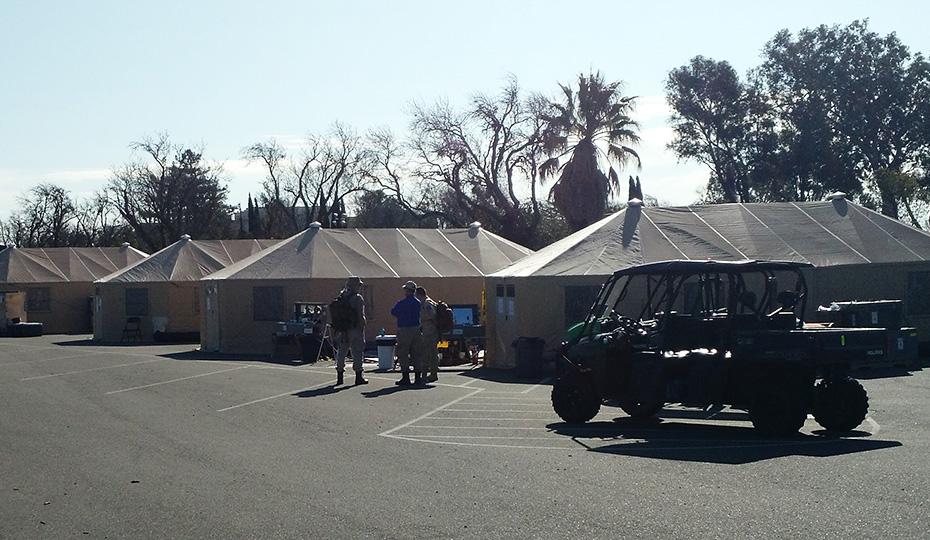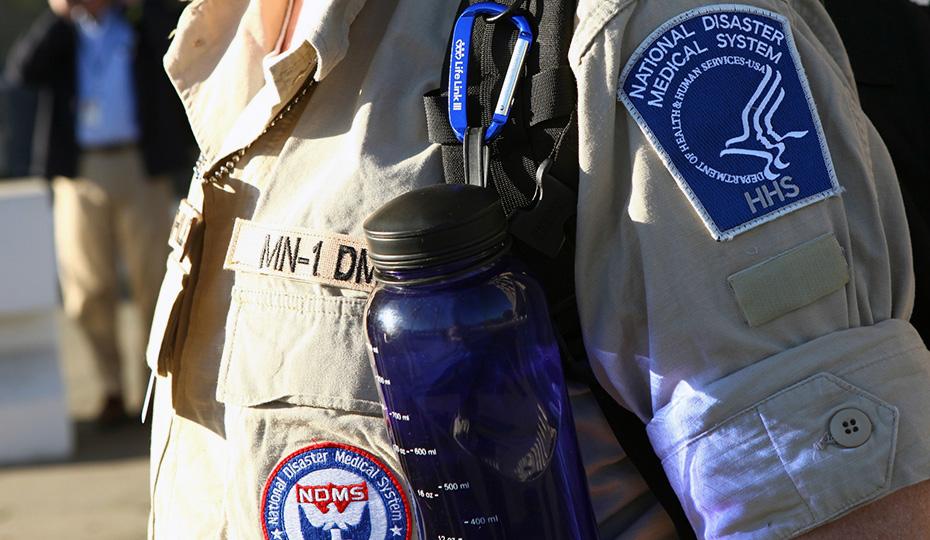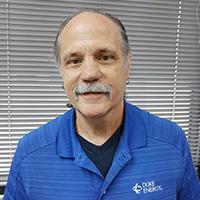He Deployed With Disaster Team to Help During COVID-19
Duke Energy’s Larry Reeder set out to make a difference with the National Disaster Medical System
Who knew a magazine ad could change your life and give it greater purpose, joy and meaning?
That’s what happened for Larry Reeder, an Army veteran and radiation protection technician at Duke Energy’s Crystal River, Fla., power plant.
For Reeder, it all started 10 years ago while returning from a business trip. He picked up the magazine from the seat pocket on the airplane and the advertisement caught his eye because it read, “The Best of Care in the Worst of Times. Take on New Challenges. Join an Amazing Team. Protect Health and Save Lives.”
Reeder didn’t know just how much that would affect his life. Reeder accepted the challenge and became a member of the National Disaster Medical System, an organization in the U.S. Department of Health & Human Services.
“I had never heard of NDMS, and it looked like an opportunity to make a difference – to go into areas where people are in dire circumstances and needed help,” said Reeder.
The organization has almost 5,000 members across the U.S. from various health care and medical professions. They help fill in the gaps, supplementing health and medical systems and response capabilities when disasters and emergencies strike such as hurricanes, tornadoes, earthquakes, flooding and now COVID-19.
Members are on call three months a year and are deployed for about two weeks or a month throughout the U.S.
Reeder is one of more than 2,000 veterans who work at Duke Energy, which recruits veterans because they have the training, technical skills and leadership qualities that transfer to business.
Because of his Army training as a respiratory therapist coupled with the safety and industrial hygiene training he received while working at Crystal River, Reeder was assigned to the Disaster Medical Assistance Team as a safety officer. The team provides urgent medical care when seconds could mean the difference between life and death.
Since the beginning of the COVID-19 pandemic in February, Reeder has been deployed three times to help those in need. He was first stationed at Travis Air Force Base then the Marine Corps Air Station Miramar, both in California, and most recently in Maryland assisting the state’s National Guard.
Reeder is responsible for the safety of the team members. “I also function as a respirator fit tester using the N95 (face) mask,” Reeder said. “I make sure the mask fits properly for the protection of the staff and the patients alike.”
While serving with NDMS during COVID-19, Reeder said some of the health care decisions have been rough and emotional – like the time when a husband was transferred back to the U.S. and his wife was still overseas in critical condition due to a COVID-19 outbreak on their cruise ship.
“I didn’t know what to do or say to the man to comfort him,” Reeder said. “I was just there for him.”
Other Duke Energy employees have been deployed during COVID-19.
Christopher Niles, an operator in the Distribution Control Center, an Army veteran, was on active duty for 31 days. He was responsible for the planning and coordination for 300 National Guard soldiers that included the operations for two foodbanks in Winston-Salem and Greensboro, N.C., as well as delivering medical supplies and personal protective equipment throughout the state.
Throughout the pandemic, Reeder has seen the resourcefulness of communities with many distilleries making hand sanitizer. He has also experienced some special moments that still make him smile.
“There was a time when a crew member was unable to attend his daughter’s wedding due to the quarantine,” Reeder said. “A DMAT team member loaned out his iPad and wired it to the apartment’s big screen. We arranged FaceTime. With the help of an iPad at the wedding and a robotics company near the wedding location, he was able to walk his daughter down the aisle in Texas from California.
“With everything going on with COVID-19, these are the types of stories the public does not get to hear. It’s why I do what I do with NDMS. In my small way, I’m making a difference.”




